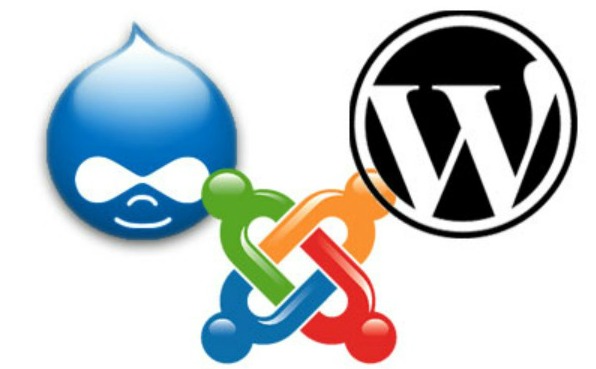Back in the day, SEO was a far simpler proposition. A website owner could put some ‘keywords’ into their website content and maybe write an article or two once in awhile and throw that out onto the internet. You could actually see the result very quickly and celebrate success. You could easily measure this bottom line and take it to the bank. Today is a totally different matter. It’s very sophisticated and ever changing. You could learn it! The Internet is full of online schools, YouTube has free video tutorials, and many articles are posted online for free. Question is, do you have the time or inclination to go and teach yourself how to do this? Aren’t you far too busy doing your own job? Add that to the fact that ‘experts’ are not hatched over night – they grow in experience… they’ve spent time ‘treading the boards’ and they accumulate knowledge. If they do this job full time, they will be staying in touch with what’s happening now, they will not continue to ‘ride’ what worked yesterday.
Q&A
Q: Why should I hire someone to help me with my search engine optimization?
A: Because if you hire someone who actually knows what they are doing, you’ll be investing in the most cost effective way to sell your products and services.
Q: What exactly is ‘SEO’?
A: Search Engine Optimization is a methodical process of getting your website to appear more frequently and higher up on the pages of major search engines such as Google. This means that more visitors visit your website and since they are arriving to your site having been screen for relevance, then SEO essentially translates into more sales…or ‘good conversion rate’ as it’s called. Visitors don’t just ‘hit’ your site, they stay awhile they ‘stick’ on the website and shop. You sell plus they buy equals happy customer, happy company!
Q: How does someone know exactly what to do in order to attract the right visitor who will be more likely to purchase from the site?
A: A good strategist, a webmaster who is informed, makes it his or her business to know how each search engine works, that is, what content is it likely to see on a site & what terms does it respond to when it sets out to look for any given website.
There are so many ways to optimize ‘searching’ a website; the SEO developer can target different kinds of searches such as an:
Image Search
Local Search
Video search
Academic Search
News Search
Q: What are some of the ways n’ means an SEO Expert applies to a website in order to ‘pull’ traffic to it that’s relevant and can be converted into an actual sale?
A: An internet marketing strategist first runs a thorough site analysis. He or she ascertains what, if anything, is obstructing the search engines activities that, when unencumbered, can more easily pull traffic to the site. Some of these obstructions are the following:
How is the website coded? Is it up to speed, as in the current HTML5 Google preferences? A website is in essence – cyber architecture. There are ways into the site and exits just as there are ways to go in and out of a house.
Are there keywords that need removing or adding to enhance the websites indexing activities.
Is there video production content on the site and is that video encoded so that the search engines can locate and index it?
Does the website development have back-links to assist it in being indexed?
The technician can also detect an unfavorable ‘Crawler ‘, that if left unmanaged can hinder the websites development on the internet. They can submit and place code to tell the ‘bot’ to not crawl the site.
Q: How does the Webmaster determine whether you should buy online advertising?
A: There are many types of analytics that help determine what type of advertising, if any, needs to be included into the SEO & SEM activities. Pulling this information together is like a harvesting process, then you must site and sift thru what’s working and what’s not working.
Google states that there are more than 200 indicators they employ when searching for and indexing websites. How many do we know, is a good question!? Lol If we build websites and launch them to sell our products and services, then wouldn’t it make sense to put a bit of effort into getting the website found?
It’s shouldn’t surprise anyone to learn that the very way in which the site is built can help or hinder it’s performance. The website development, what code was used, what content is on the site, how it’s initially registered in the search engines determines a lot about how it’s indexed. Think ‘filing cabinet’ here…search engines are methodical devices that only understand pure logic. They do not go into the file folder that says “J” and look for “S”.
There is a way to build, maintain, and manage a website that can reduce your sleepless nights and move more of your product.
The main obstacle towards hiring an SEO Website Developer is a very understandable one; it’s a reatively new industry and knowing when and who to hire is often a major stumbling block. To the novice, until you see your sales increased, you haven’t a lot to go on except the monthly statistical reports regarding the websites activities.
Besides, if you are a small business owner, you built your business a brick and a board at a time… sweat and sacrifice a plenty! So, if you’re a typical small business owner, you’ll not part easily with your money. You may even be tempted to stick with the tried, tested and true local press, media and yellow pages! Not a good idea. Not today. Today, you need to be online, with a strategy and at the very least video content on your website.
Do yourself a favor: Do it right from the start. Get the website built/ constructed correctly, hire some help to draw up a strategy / a plan and work the plan.
One way to understand SEO & SEM and how they actually works is to visualize the inner parts of an antique watch. Every wheel or gear is connected to another one…and sometimes one gear can move six other wheels and gears. If one of those gears or wheels is ‘hung-up’, not turning at all, then everything that follows on is also stagnant. Could you imagine anything more futile than winding up a clock, by using it’s stem, winding and winding…when the clock has no hands to turn on the face of it? How would you ever know what time it is. This is exactly what happens when you hire a so called website developer who cannot prove to you that they have generated sales for their clients.
An SEO Web Developer is worth their weight in gold if you find an honest and committed one. Ask and get referrals; if they are good, their clients will be able to show you results from their efforts. Don’t settle for someone who just exercised their bragging rights. Search until you have one who has proved their worth by making their clients money.
Pay attention to the results the SEO Website Developer puts in front of you. Let them measure continuously….harvest the websites data, trim what needs trimming, add what needs adding and don’t pinch pennies if they suggest to you that you need to modify certain features in your website. The environment that we call the ‘internet’ is dynamic…it changes all the time and some of these changes are crucial and need to be applied to your website.
Let your webmaster cultivate the website within the arena you want it to grow in.
Then you can count your money! Play another round of golf, get to the kids baseball game on time and still be able to take your spouse out to dinner and get up late the next morning!
Do this:
Hire the same quality of expert as you are, hire someone who works as hard as you do to stay ahead of the game… hire them and then take their advice, and let them do their job.

